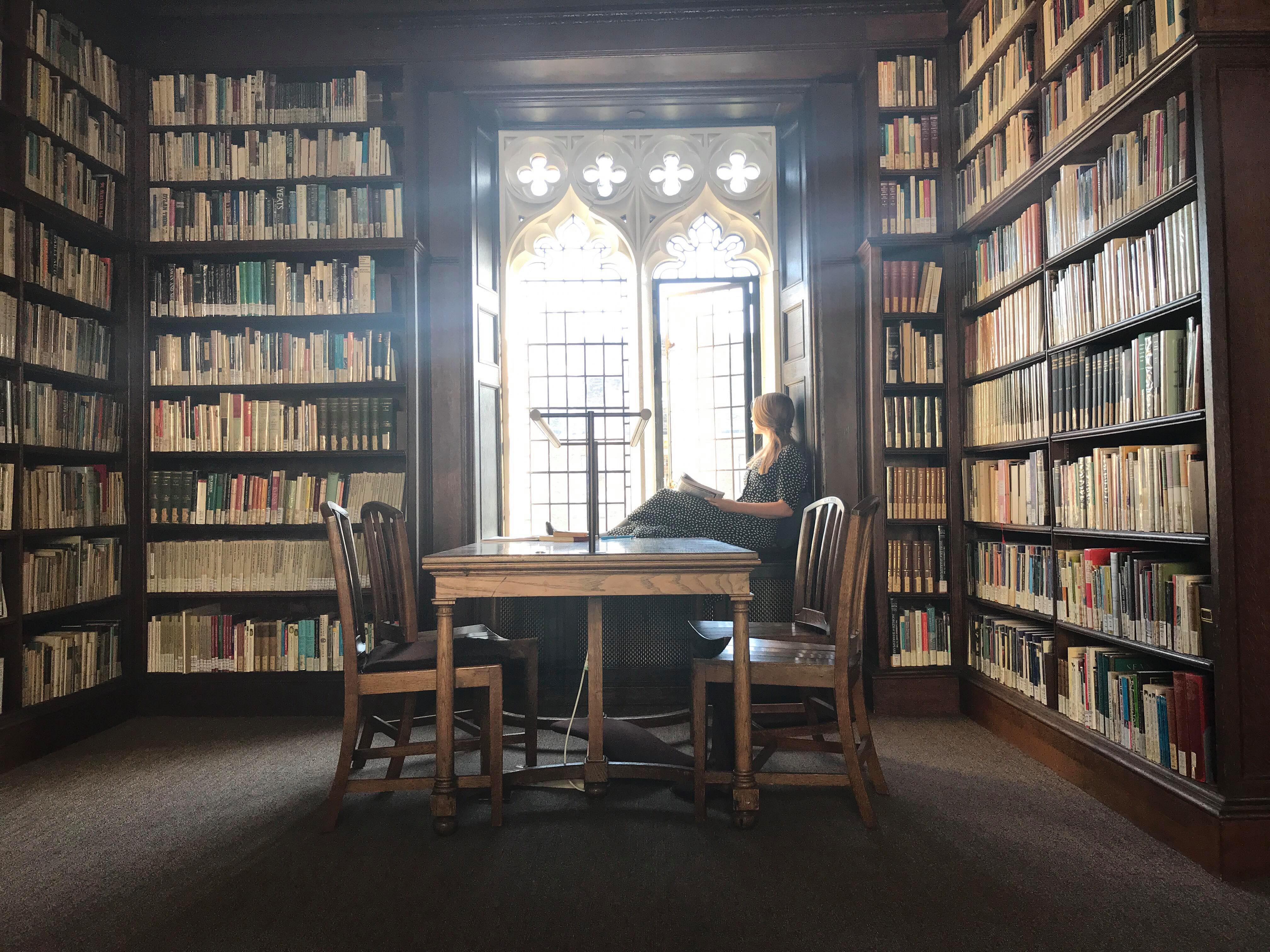'A Singular Experiment' A PRIVACY PhD abroad

PhD Fellow at the Centre for Privacy Studies, Anni Haahr Henriksen, has just returned after four months at the University of Cambridge. In Cambridge, she worked with her co-supervisor, Dr Annabel Brett, Professor of the History of Ideas. We have asked Anni about her stay abroad.
Part of the purpose of your stay was to work on your dissertation, and to write a publication on surveillance of the private mind in Elizabethan England. Has the academic outcome lived up to those expectations?
I am pleased to say that the academic outcome has been considerable. My collaboration with Annabel Brett, was extremely rewarding, and I have thoroughly enjoyed the benefits of an ambitious environment at the History Faculty. As you point out, my goal was to write a draft for the first chapter of my dissertation, as well as to write a publication on surveillance. The publication is a book chapter for a history of surveillance. The chapter is now being peer-reviewed - !! – So I’m crossing my fingers and hoping for constructive and positive feedback.
What is the title of your contribution?
The title of the chapter is: ‘‘Consciences are not to bee forced, but to bee wonne’: The Inward Turn in Elizabethan Homiletic Discourse and Legal Debate, 1570-1593.’
And the book?
The book is titled Eyes & Ears of Power: Histories of Surveillance from Antiquity to the Digital Age. It is set for publication in late 2020 and is published by Routledge.
Did you find time to work on the dissertation as well?
Yes. For the thesis chapter, I went through heaps of texts from ancient, medieval and contemporary - that is Elizabethan - thinkers and their works on the role of imagination, conscience, will and mind in relation to society and religion. From my observations when reading these texts, I wrote an outline for the first chapter. Upon my return to Copenhagen, I followed that outline and used it to write the planned draft - which gives a synchronic outline of some of the key ideas about the mind as a private space in political and religious thought in the Elizabethan period.
Have there been any specific advantages or challenges to working abroad, so to speak?
A huge advantage has been the easy access to archival material. My contribution to the Routledge publication dives into court records, propagandistic homilies - that is church sermons - and subversive legal debates. I have had to make several trips to London to consult these primary sources. A good share of my sources were naturally also in Cambridge, at Cambridge University Library, and in the libraries of the respective colleges, but the lion’s share of the material was located at Lambeth Palace Library and the British Library. It would have been extremely expensive for me to conduct this archival research from Copenhagen, and likewise I would not have had the same opportunity in Copenhagen to focus so singularly on my work as I have in Cambridge.
Could you elaborate on that? I understand that you took quite a systematic approach.
Yes, it has been a great advantage to be able to freely structure my day without any other obligations. To cut a long story short, I conducted a rather singular experiment on myself. That is to say, I structured my day to the extreme. I got up every morning at 6 am and went for a run. From 8-11 am I forced myself to write. At 11.30 I went to St. Catharine’s College for lunch. Afterwards, I worked at the college library until 3 pm. I then I went for a cup of tea at the University Library where I worked until 7 pm. When the library closed at 7pm, I went home, cooked dinner and was in bed by 10 pm.
This combination of concentrated work and fresh air gave me the energy and mental capacity to stay focused all day. I spent my weekends re-booting and, when necessary, consulting primary sources in the London archives. I do not recommend a prolonged lifestyle with this level of structure and social isolation. But for the duration of the four months I was away it provided a ‘matter of course’ mentality and calmness to my work, and it forced me to be productive while providing a unique space for immersion.
Phew! Sounds a bit tough?
I know – it sounds like the regime of some mad person, but it really wasn’t bad at all! My stay has been incredibly productive, and I am proud of what I have accomplished in such a short period. And of course, I have had a lot of help – from Annabel, but also from her colleagues. All things considered, a very successful stay.
